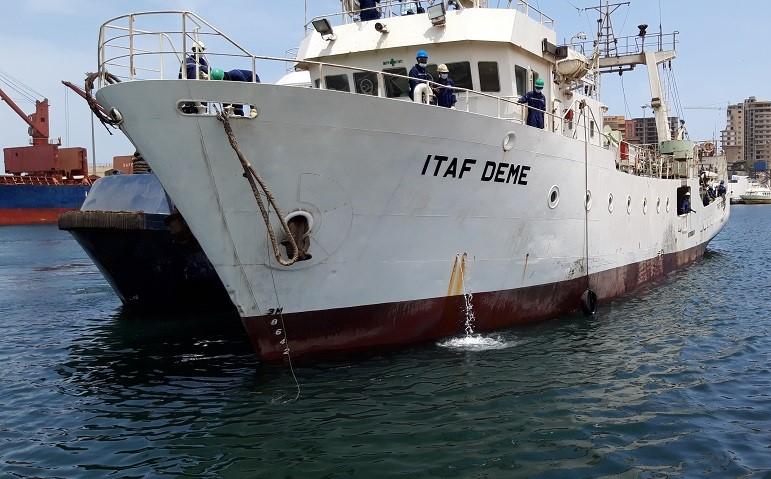This article is based on the report entitled “Retrospective and prospective evaluation of the protocol to the partnership agreement on sustainable fisheries between the European Union and the Republic of Senegal”.
The report examines an agreement between the European Union (EU) and Senegal on sustainable fisheries. This agreement, set up for the period 2019 to 2024, aims to allow European vessels to fish in Senegalese waters while respecting rules to protect the marine environment and support local communities.
Background to the Agreement
The fishing sector is crucial to Senegal’s economy. In 2022, exports of fishery products reached 227,157 tonnes, generating around CFAF 210.75 billion. The sector contributes around 3% of Senegal’s GDP. The agreement between the EU and Senegal allows a maximum of 45 European vessels to fish in Senegalese waters in exchange for annual financial compensation of EUR 1,700,000, of which EUR 900,000 is earmarked to support Senegal’s fisheries policy.
Implementation of the Protocol
The Protocol allows different types of EU vessels to fish in Senegal:
-
28 freezer tuna seiners,
-
10 pole-and-line tuna vessels
-
5 surface longliners
-
2 deep-water demersal trawlers.
For highly migratory species such as tuna, there is no catch limit, while for demersal trawlers, the limit is set at 1,750 tonnes per year. In exchange for these fishing rights, the EU pays EUR 800,000 per year, with additional amounts payable if catches exceed a certain threshold.
Results and challenges
Between 2019 and 2022, the activity of European vessels fluctuated. For example, in 2019, catches reached 10,332 tonnes, but fell to 1,049 tonnes in 2022, mainly due to the ban on bait fishing in Hann Bay. This drop was marked by a reduction in the activity of pole-and-line tuna vessels.
Annual catches by EU vessels in Senegalese waters average 1,756 tonnes, 47% of which are tuna. European vessels fish mainly offshore to minimise interaction with local artisanal fishing.
Support for the Sectoral Fisheries Policy
A significant proportion of the EU’s financial compensation is earmarked to support Senegal’s fisheries policy. This support helps to finance initiatives to sustainably manage marine resources and improve the living conditions of fishing communities. For example, the agreement provides funds for projects aimed at strengthening local fisheries management capacities and developing aquaculture.
Recommendations for the future
To ensure the sustainability of fish stocks, the report recommends a number of measures.
-
It proposes a reduction in fishing effort for certain species, such as flat sardinella, and restrictions on the use of catches for fishmeal production.
-
It is also suggested that measures be put in place to protect juvenile mackerel, a species that is currently fully exploited.
-
The negotiation of a new revised protocol excluding fishing opportunities for black hake and focusing exclusively on tuna fishing is considered to be the most appropriate option.
-
Strengthen control and surveillance measures to prevent overfishing.
-
Increase support for aquaculture to reduce pressure on wild stocks.
-
Improve working conditions for local seafarers and ensure a fairer distribution of fishing profits.
The protocol between the EU and Senegal represents an important initiative for the sustainable management of marine resources. Although it has allowed European vessels to fish in Senegalese waters, it has also posed challenges in terms of managing catches and protecting marine ecosystems. The report’s recommendations aim to improve these aspects for future agreements, with an emphasis on reducing fishing effort and protecting fish stocks.
Aliou DIALLO


